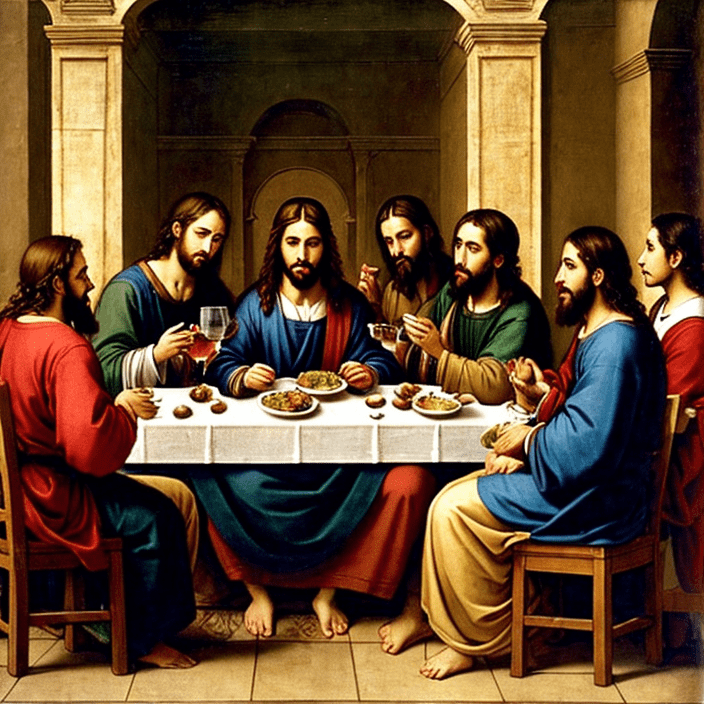Christian Sacrament Prayers vs Kiddush: What Was Yeshua Practicing?

When exploring the practices of Yeshua (Jesus) and understanding the traditions He observed, a comparison between Christian Sacrament Prayers and the Jewish Kiddush prayer is often considered. Both rituals involve the use of wine or grape juice and carry significant spiritual and symbolic meanings. In this article, we will examine the distinctions and similarities between Christian Sacrament Prayers and the Kiddush, shedding light on the practices of Yeshua and their historical context.
Christian Sacrament Prayers:
Christian Sacrament Prayers, also known as the Lord’s Supper, Holy Communion, or Eucharist, hold a central place in Christian worship. They commemorate the Last Supper of Yeshua with His disciples, where He instituted the practice. The elements used in Christian Sacrament Prayers are typically bread and wine (or grape juice), symbolizing the body and blood of Yeshua.
Kiddush in Jewish Tradition:
The Kiddush, in Jewish tradition, is a ritual prayer recited over wine or grape juice to sanctify the Shabbat and other Jewish holidays. It serves as a reminder of God’s commandment to observe and honor the sacredness of the day. The Kiddush prayer expresses gratitude, acknowledges God’s blessings, and sanctifies the Shabbat through the blessing over the wine.
Yeshua’s Practice:
Yeshua’s practice of the Last Supper aligns with both the Christian Sacrament Prayers and the Jewish Kiddush in certain aspects. During the Last Supper, Yeshua used bread and wine to symbolize His body and blood, emphasizing their significance in the context of His impending sacrifice. The communal aspect of sharing the bread and wine in remembrance of Him mirrors the spirit of fellowship and unity found in the Kiddush.
Differences and Similarities:
While there are similarities between Christian Sacrament Prayers and the Kiddush, there are also notable differences. The theological understanding of the bread and wine differs, with Christian Sacrament Prayers emphasizing their transformative spiritual significance, while the Kiddush primarily signifies sanctification and gratitude. The prayers themselves also differ in content and structure, reflecting the unique beliefs and practices of each tradition.
Historical Context:
Understanding Yeshua’s practice requires considering the historical and cultural context of His time. Yeshua was a Jewish rabbi living in a Jewish society, and His teachings and practices were deeply rooted in Jewish traditions. The Last Supper occurred during the preparation of the Passover celebration, a significant Jewish holiday, which adds layers of meaning to His words and actions.
Conclusion:
The comparison between Christian Sacrament Prayers and the Kiddush provides insight into Yeshua’s practices and the traditions He observed. While the Christian Sacrament Prayers commemorate the Last Supper and emphasize the transformative spiritual significance of bread and wine, the Kiddush sanctifies the Shabbat and expresses gratitude within the framework of Jewish tradition. Exploring these practices deepens our understanding of Yeshua’s life and teachings, highlighting the rich tapestry of Jewish roots within the Christian faith.
Here are the separate blessings for the wine and bread in the Kiddush prayer, along with the English translation and pronunciation guide:
Blessing over the Wine (Grape Juice): Hebrew: בָּרוּךְ אַתָּה יְהוָה אֱלֹהֵינוּ מֶלֶךְ הָעוֹלָם, בּוֹרֵא פְּרִי הַגָּפֶן. Baruch atah Yehovah Eloheinu Melech ha’olam, borei p’ri hagafen.
English Translation: Blessed are You, Yehovah our God, King of the universe, who creates the fruit of the vine.
Pronunciation Guide: Baruch atah Yehovah Eloheinu Melech ha’olam, borei p’ri hagafen. (bah-rookh ah-tah Yehovah Eloheinu meh-lekh ha-o-lam, boh-ray pree hah-gah-fen)
Blessing over the Bread: Hebrew: בָּרוּךְ אַתָּה יְהוָה אֱלֹהֵינוּ מֶלֶךְ הָעוֹלָם, הַמּוֹצִיא לֶחֶם מִן הָאָרֶץ. Baruch atah Yehovah Eloheinu Melech ha’olam, hamotzi lechem min ha’aretz.
English Translation: Blessed are You, Yehovah our God, King of the universe, who brings forth bread from the earth.
Pronunciation Guide: Baruch atah Yehovah Eloheinu Melech ha’olam, hamotzi lechem min ha’aretz. (bah-rookh ah-tah Yehovah Eloheinu meh-lekh ha-o-lam, hah-moht-zee leh-khem meen hah-a-retz)
Note: Yehovah is the pronunciation used for the divine name in some Hebrew traditions, but it’s important to recognize that there are various pronunciations and traditions regarding the divine name.

